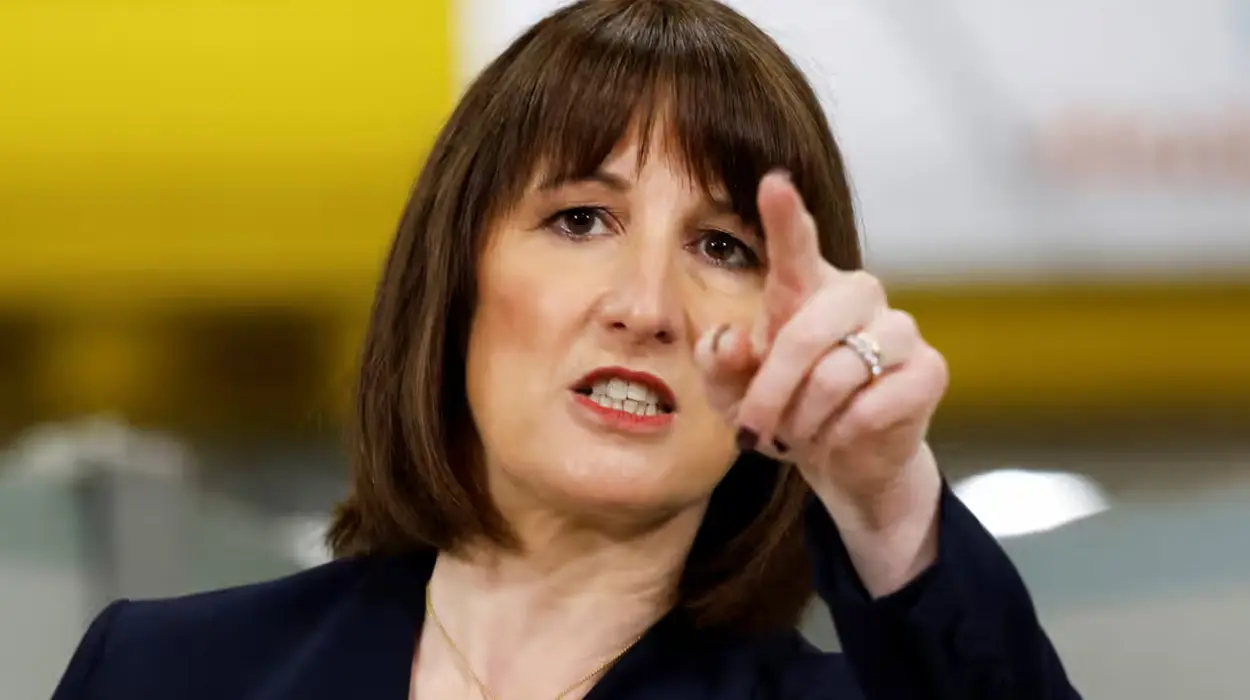UK (Parliament Politics Magazine) – Britain’s annual borrowing surged past predictions by £15bn, sparking fears of tax rises and deeper cuts to meet Chancellor Rachel Reeves’s fiscal rules.
As reported by Sky News, official figures reveal government borrowing exceeded estimates by nearly £15bn in the previous financial year.
ONS report about UK borrowing
The Office for National Statistics revealed that government borrowing for the 12 months ending in March stood at £151.9bn, reflecting the gap between government spending and income.
According to the report, the provisional sum exceeded last year’s by £20.7bn. It also surpassed the £137.3bn forecast by the Office for Budget Responsibility by £14.6bn.
The figures accounted for 5.3% of the UK’s GDP, marking a 0.5 percentage point increase compared to 2023/2024.
The borrowing in March reached £16.4bn, marking the third-highest March borrowing since records began in 1993.
The provisional statements reveal that public sector net debt reached 95.8% of GDP by March’s end. This reflects a 0.2 percentage point rise from March 2024, a level last recorded in the 1960s.
The rise in borrowing can be attributed to the government’s investment and spending plans outlined in the chancellor’s autumn budget last year.
The rise is also driven by growing costs of servicing government debt. Bond markets reflect both global economic instability and concerns over domestic inflation and weak growth, putting additional pressure on public finances.
What did the ONS chief economist say about public sector borrowing and debt?
ONS chief economist Grant Fitzner stated,
“Our initial estimates suggest public sector borrowing rose almost £21b in the financial year just ended as, despite a substantial boost in income, expenditure rose by more, largely due to inflation-related costs, including higher pay and benefit increases.”
He added,
“At the end of the financial year, debt remained close to the annual value of the output of the economy, at levels last seen in the early 1960s.”
What did Ruth Gregory say about public borrowing and tax hikes?
Economists warn that Ms. Reeves may need to raise taxes or impose more public spending cuts in the autumn budget to meet her fiscal goals.
Ruth Gregory, the deputy chief UK economist at the consultancy Capital Economics, stated,
“Public borrowing was overshooting the OBR’s forecast even before the influence from the tariff chaos is felt,”
adding,
“This raises the chances that if the chancellor wishes to stick to her fiscal rules, more tax hikes in the autumn budget will be required.”
What did Mel Stride say about rising government borrowing and debt?
Mel Stride, the shadow chancellor, described the figures as “alarming,” warning that the government was permitting borrowing and escalating debt.
He added,
“These eye-watering sums are being paid for by hard-working people through higher taxes, higher prices and higher mortgage rates.’’
What did Darren Jones say about economic stability and government spending?
Darren Jones, the chief secretary to the Treasury, stated,
“Economic stability is crucial within a changing world. We will never play fast and loose with the public finances, that’s why our fiscal rules are non-negotiable and why we are going through every penny of taxpayer money spent, line by line, for the first time in 17 years to tear out waste.”
He added,
“We are laser-focused on making sure taxpayer money is delivering our plan for change missions to put more money in people’s pockets, rebuild the NHS and strengthen our borders.”
Business groups views on chancellor’s new tax burden on employment
According to business groups, the chancellor’s decision to raise taxes on employment, including higher minimum wage and increased employer national insurance contributions, may ultimately harm job growth. It could also negatively impact investment.
Inflation is set to climb above 3%, which could further strain household spending power due to increasing costs for energy and water bills.
IMF views on Trump’s trade policies
According to the International Monetary Fund, Donald Trump’s escalating trade wars have caused a ‘major negative shock’ to the world economy.
Chancellor Rachel Reeves is scheduled to meet today with her global counterparts at the IMF’s annual spring meeting in Washington.

